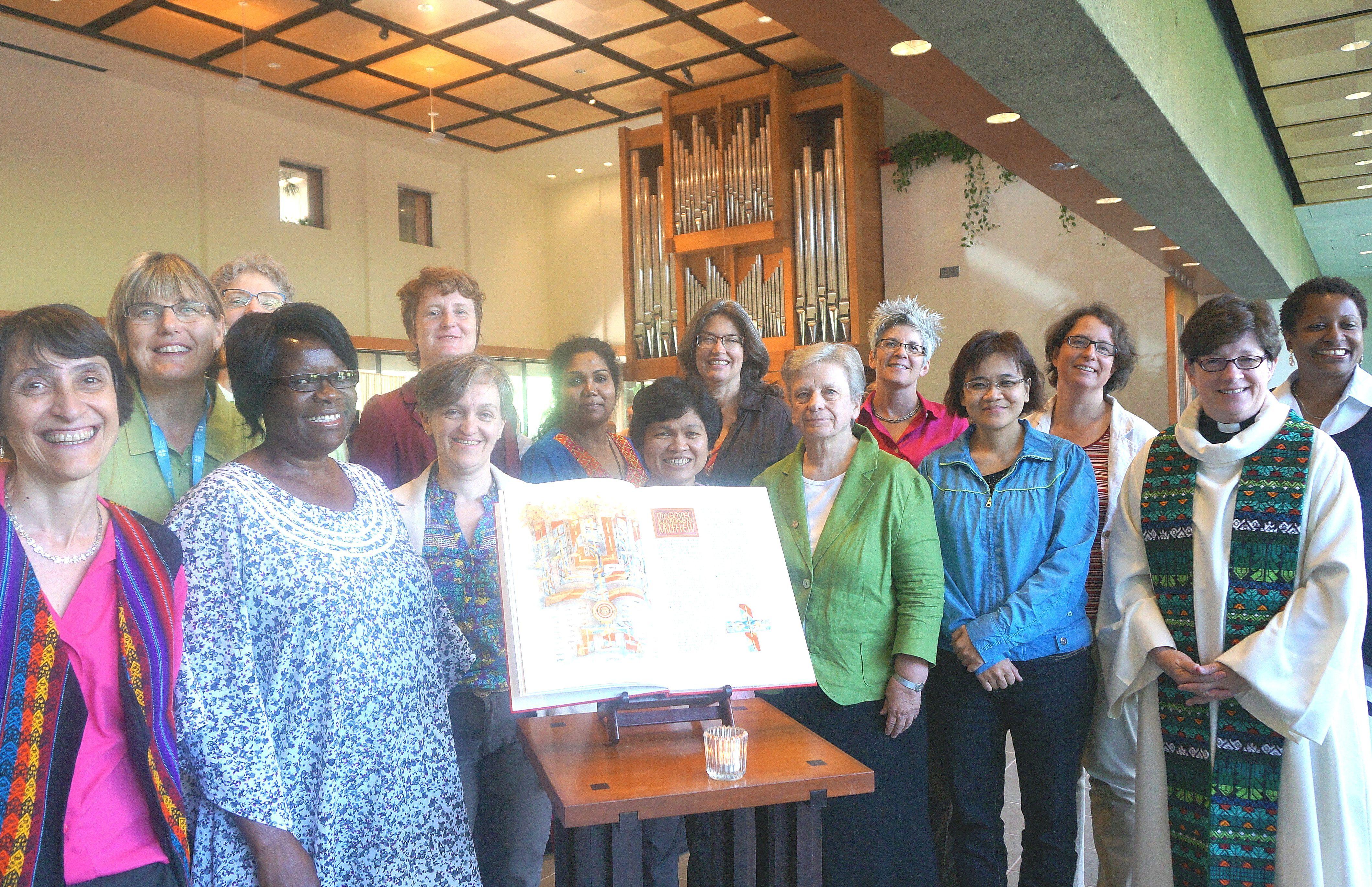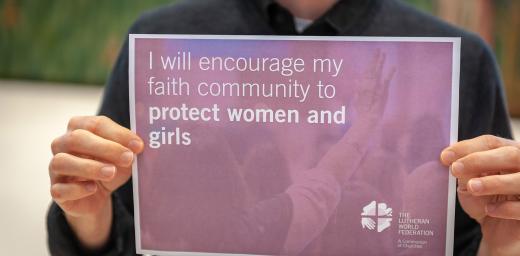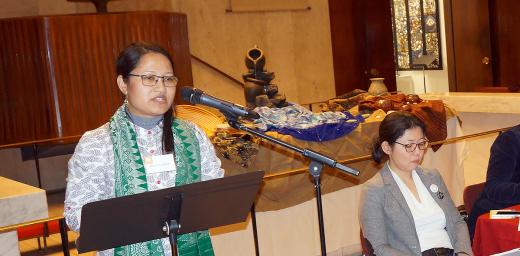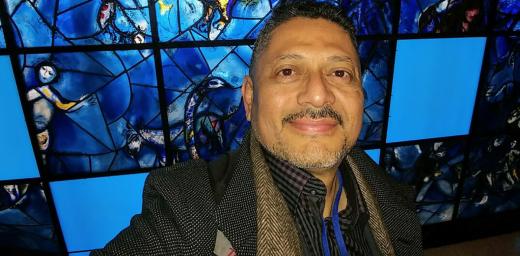Seeking Matthew’s Wisdom for Today

Women theologians at the third LWF International Conference on Hermeneutics. Photo: LWF/ I. Benesch
By Barbara Rossing and Magdalena Ya-Shalongo
Of our four gospels, Matthew may be the one most favorable to women’s leadership in the early church. Matthew is the gospel where “women and children” are explicitly noted as present at the Feeding of the Five Thousand (Mt 14:21). Matthew includes all of the Gospel of Mark’s healing stories of women and girls (the Canaanite woman’s daughter; the woman with the hemorrhage; Jairus’s daughter) as well as the unnamed woman who anoints Jesus and Jesus’ commendation of her: “Wherever the Gospel is preached in all the world, what she has done will be told in memory of her” (Mt 26:13).
In Matthew's account of the resurrection, the women believe the angel, they proclaim the resurrection to the disciples, and they are the first to worship the risen Jesus (Mt 28:8-9). Women are models for preaching the good news about resurrection in Matthew's gospel.
Most intriguingly, Matthew’s Gospel presents Jesus as Wisdom, the feminine biblical figure of “Sophia,” familiar from Proverbs 8 as God’s partner who comes to dwell in the world. More than any other gospel, Matthew’s Christology draws on the Wisdom traditions, a possible indication of the importance of women’s leadership and wisdom in the Matthean community.
“Wisdom is justified by her works” (Mt 11:19), Jesus says. Justification and works—the marks of Wisdom to which Jesus points in Matthew--received significant attention at this conference.
Seeking Matthew’s wisdom for today, and for Lutheran biblical interpretations in our global contexts, is the conference goal. We have heard papers at the intersections of New Testament and Reformation interpretations, grounded in the global contexts in Africa, Asia, Latin America, North America and Europe from which we come. Several papers gave special attention to Martin Luther and the Sermon on the Mount. Esther Menn gave a paper on Matthew and Reconciliation. Two Jewish scholars, including a rabbi and Prof Sarah Tanzer of McCormick Seminary, explored Matthew’s perspective as the most Jewish of our gospels.
As we are on the move towards 2017, women’s perspectives bring life to biblical interpretation. In Bible studies and women’s groups throughout the LWF, the Gospel of Matthew and its inclusion of women and other marginalized people continues to empower women. We explored the ways in which Martin Luther commented at length on Matthew and especially loved the story of the Canaanite woman in Matthew 15.
Some of the papers by women scholars considered Matthew’s use of Mark (Dr Eve-Marie Becker, Denmark), Preaching the Sermon on the Mount (Dr Shauna Hannan, USA), Matthew and Migration (Dr Monica Melanchthon, India), the Lord’s prayer in a Chinese context (Dr Grace Hui Liang, China), Matthew and Ecology (Dr Barbara Rossing, USA), and Love of Neighbor and Love of Enemy (Dr Oda Wischmeyer, Germany). Women participants also came from Argentina, Brazil, Indonesia and Malaysia. Presiding Bishop Elizabeth Eaton, the ELCA’s first woman presiding bishop, preached on Matthew 18 at the worship service on 9 September.
This has been a wonderful learning process for young theologians. It was also a time of inspiration from those scholars who have been in ministry for many years. “As the first woman pastor to hold a doctorate degree in Namibia, I believe this conference can motivate my fellow women pastors, especially young ones, to take up their study seriously. I hope we will see the decentralization of scholarship so that more women can study in their respective regions, and receive more training and leadership” says Rev. Dr Magdalena Ya-Shalongo.
Inspired by Matthew’s vision of discipleship and service, and by the Reformers, we trust the LWF will continue the reforming work of the Reformation in our communion. This includes mainstreaming the Gender Justice Policy at all levels of church structures.
Dr Barbara Rossing is professor of New Testament at the Lutheran School of Theology at Chicago. Rev. Dr Magdalena Ya-Shalongo is a pastor of the Evangelical Lutheran Church in Namibia, the principal of Engela Parish Institute and teaches strategic leadership and administration.





